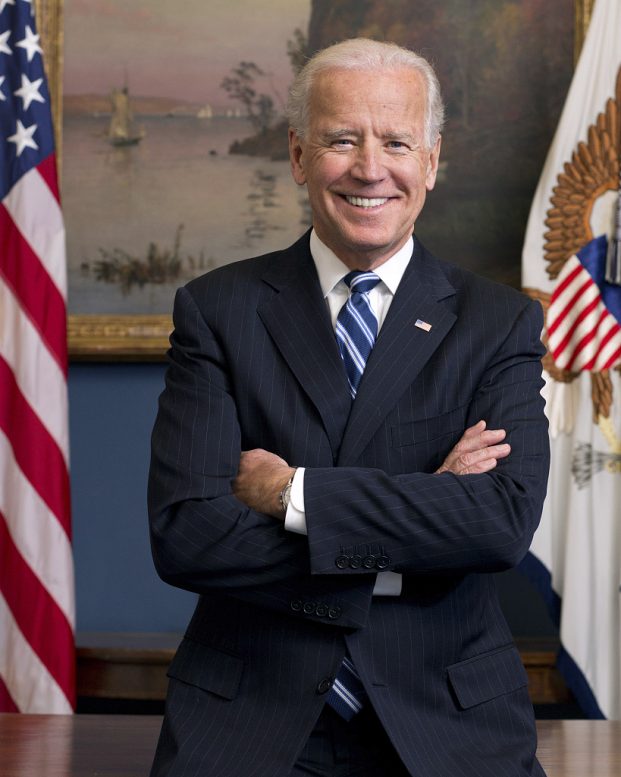WASHINGTON — The final step in a turmoil-filled 2020 presidential election is set for Wednesday, when Congress will certify election results showing that Joe Biden defeated President Donald Trump.
But a series of objections from GOP legislators is expected to stretch that routine process into a much lengthier one — and one that is dividing the Republican Party between those who back Trump’s baseless claims of election fraud and those who do not. Those claims have failed repeatedly in dozens of lawsuits brought by Trump’s legal team.
At least 12 GOP senators and dozens of House Republicans say they intend to object to the Electoral College results as those votes are read, state by state, in a joint session that begins at 1 p.m. ET Wednesday.
That includes at least four Ohio Republican Congressmen: Jim Jordan, Bob Gibbs, Bill Johnson and Warren Davidson.
The positions of every Republican member of Congress from States Newsroom’s 20 states are collected here — as well as the names of the many Republicans, including U.S. Rep. Bob Latta, R-Ohio, who have not yet disclosed whether they will vote to certify Biden as the president-elect.
It’s not yet clear exactly how Wednesday’s process will unfold, but Republicans could raise objections to the results from as many as six swing states: Arizona, Georgia, Pennsylvania, Michigan, Wisconsin and Nevada.
Not all Republican lawmakers have embraced Trump’s refusal to accept the election results. A dozen House Republicans are pushing back, arguing that Congress has a narrow role in elections and that states are responsible for selecting electors to certify votes.
“To take action otherwise— that is, to unconstitutionally insert Congress into the center of the presidential election process —would amount to stealing power from the people and the states,” lawmakers wrote in a letter, obtained by the publication Punchbowl, to House Speaker Nancy Pelosi (D-Calif.) and House Minority Leader Kevin McCarthy (R-Calif.) on Sunday.
Republicans signing that letter include Ken Buck of Colorado, Ann Wagner of Missouri, Mike Gallagher of Wisconsin, Ashley Hinson of Iowa and Pete Meijer of Michigan, among others.
“It would, in effect, replace the electoral college with Congress, and in so doing strengthen the efforts of those on the left who are determined to eliminate it or render it irrelevant,” they wrote.
Raising a formal objection to the Electoral College results requires a written document signed by at least one member of the House and one senator. A recognized objection prompts two hours of debate in each chamber, followed by a vote.
While the process may drag out, possibly even into Thursday, those objections are unlikely to change the outcome, with both the Democratic-controlled House and Republican-controlled Senate expected to defeat the challenges.
As that debate plays out inside the Capitol, potentially violent protests are expected in downtown Washington, where militia groups and members of the extremist group the Proud Boys are already gathering to show support for Trump.
Here’s what Republican members of Congress from States Newsroom states have said publicly about whether they will support certifying the results or will object to that process, beginning with Ohio.
U.S. HOUSE
Ohio
OBJECTING
“The ultimate arbiter here, the ultimate check and balance is the United States Congress and when something is done in an unconstitutional fashion, which happened in several of these states, we have a duty to step forward and have this debate and have this vote on the 6th of January,” Jordan said in a Fox News appearance.
“I believe fraudulent actions and illegal voting in one state dilutes the power and voice of voters in all states. I do not believe the allegations of fraud and improprieties have gotten their day in court, as many cases were dismissed on procedural grounds, often times citing lack of standing. If the American people could not hear the evidence in court, it is incumbent upon Congress to provide that venue,” Gibbs said in a statement.
“I will support objections to the certification of the Electoral College vote of Pennsylvania, and possibly other states on grounds that they: potentially violated the U.S. Constitution; disregarded their own state election laws; and/or failed to count all legal ballots. The Democrats and their allies in the mainstream media hide behind bullying, spin, and carefully crafted talking points to distract from this fact. But most of the people I represent know the truth— that between the news media acting as the public relations department of the Democrat party, Big Tech’s big thumb on the social media and search results scales, and credible allegations of election fraud in some states, many believe the 2020 election wasn’t fair.”
“On January 6th, I will object to electors from states that failed to uphold the equal protection principle of ‘one person, one vote’ where that failure made the intent of voters difficult to discern: AZ, GA, MI, NV, PA, and WI,” Davidson wrote on Twitter.
NOT OBJECTING
“There is no legal basis for Congress to throw out the certified electoral vote and overturn the results of this election,” Gonzalez wrote in a letter to constituents posted on his Twitter page. “While certainly not the conclusion that many would like to hear, it is the only conclusion I can come to as someone committed to Constitutional governance and who takes my oath of office seriously.”
UNKNOWN
- Rep. Steve Stivers’ office did not respond to questions about the Electoral College certification, but Stivers did issue a statement in November congratulating Biden: “With yesterday’s certification of many states’ results, it’s evident that President Trump has exhausted the due process offered to all candidates.”
- Rep. Steve Chabot
- Rep. Brad Wenstrup
- Rep. Bob Latta
- Rep. Mike Turner
- Rep. Troy Balderson
- Rep. David Joyce
U.S. SENATE
Ohio
NOT OBJECTING
Sen. Rob Portman:
“Like nearly half the country, I was disappointed in the election results. Following the election, I supported the Trump campaign’s right to pursue recounts and legal challenges. There were instances of fraud and irregularities, as there are in every presidential election, and those who engaged in that conduct should be prosecuted to the full extent of the law. But after two months of recounts and legal challenges, not a single state recount changed a result and, of the dozens of lawsuits filed, not one found evidence of fraud or irregularities widespread enough to change the result of the election. This was the finding of numerous Republican-appointed judges and the Trump Administration’s own Department of Justice. Every state has now weighed in and certified its electoral slate based on its vote and the process set out in the Constitution.”
***
Also from Ohio Capital Journal:
State won’t force nursing home workers to be vaccinated, but DeWine says nursing homes can
Even though dismal rates of nursing home workers are accepting the coronavirus vaccine, Ohio Gov. Mike DeWine on Tuesday said he would not force them to. He said, however, that nursing homes could implement such a requirement if they wanted to.
The low rate of acceptance among nursing home staff has been getting a lot of attention since last week when DeWine reported that about 60% were refusing the vaccine. On Tuesday, Ohio Department of Aging Director Ursel J. McElroy reported that in other states, nursing home workers appear to be rejecting the vaccine with similar frequency.
There are plenty of reasons to get the scarce vaccine if one is offered.
Ohio hospitals are crowded with covid patients, with Columbus on Monday activating its emergency hospital diversion program due to the crisis, said Bruce Vanderhoff, chief medical officer of the Ohio Department of Health. Also, a faster-spreading variant of the virus that forced England back into a shutdown has been found in several states and is assumed to be in many more. READ MORE




